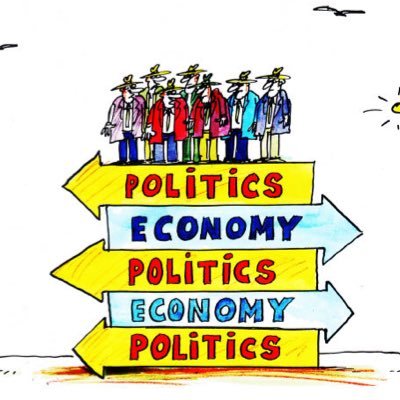Should Economics and Government & Politics be taught from the age of 14 at Secondary School?

It is a well-known fact that although we do not realise, from an early age, we all do Economics and Politics. Any decision made by us on how we pursue our needs and wants has a significant consequence on economic growth and policy decisions made by Governments. Therefore, students who will be the next generation to take over these important pronouncements need to understand the subjects sooner rather than later with clarity. This article will in some ways give the readers an indication of why both subjects need urgent attention from the outset.
Economics is about how we spend our money and on what. We then need to realise that to achieve this we would need to earn an income to facilitate the goods and services desired. This function of how we come to earn and how jobs are created is part of in some cases Government’s remit in the form of Government policy in macroeconomics and business regulations. Further, the functions of money in some ways creates demand and supply of goods and services which results in an opportunity cost, another important concept. This requires serious consideration, but students at a young age do not understand the importance of this which results in market failure.
Government and Politics plays a key role in implementing policy that then gives society the foundations to function in a civilised way. For example, the role of Governments is to enhance democracy (well in some countries anyway!) and within that create market structures that allows its citizens the freedom to make decisions on what they believe in. Brexit has created quality discussions between myself and my students to the extent of which that has not been elevated in just merely reading any text books. This also has enabled people to participate in politics through voting directly and indirectly by way of various action groups. However, students at a young age would not obviously vote but they should be able to understand the functions of Governments and Parliament through education from a young age because eventually they will have a chance to vote and air their views.
Both Economics and Politics is part of our society and from a young age, students should understand how important this will be in their lives, and any decisions they make has a resulting factor on the next generation. Preparing for what lies ahead due to our needs and wants must be taught from the beginning; anything we do in some ways does require money and an environment to spend it in. Some would argue that at 14 years of age it is too young, but really is it? If society is willing to encourage young adults to participate in ‘young MasterChef’ or any other form of reality TV show, or becoming a young entrepreneur, then surely understanding the principles of what has been earned and where it goes is important. We all understand that when we work, we get paid, but do we understand how work is created? A bit like liking a chocolate bar but not understand the process of where it comes from and what else is added to it.
Important decisions when politicians get their act together, Brexit!! has a consequence on whom?… A well-informed society is not only when Parliament is in action but needs its citizens to take the lead in wanting to be informed. This is where tutoring students on a one-to-one generally needs real time analysis and debate. I use a model that amplifies today’s events, seeing and feeling on what is happening today! Then students can feel the reality with the pragmatism.
My frustration is not because Brexit is not sorted! but it lies within the structures of bounded rationality. We can only be rational in our decision-making process when information is available to us in a symmetrical way. Therefore, learning with vision and experience can benefit students.
The sooner the better.
Jayesh is an Economics, Business Studies and Politics tutor with Newman Tuition. To book a lesson with him, or one of our other excellent tutors, please call us on 020 3198 8006, email us at he***@**************co.uk, or complete the form on the ‘Contact Us’ page.